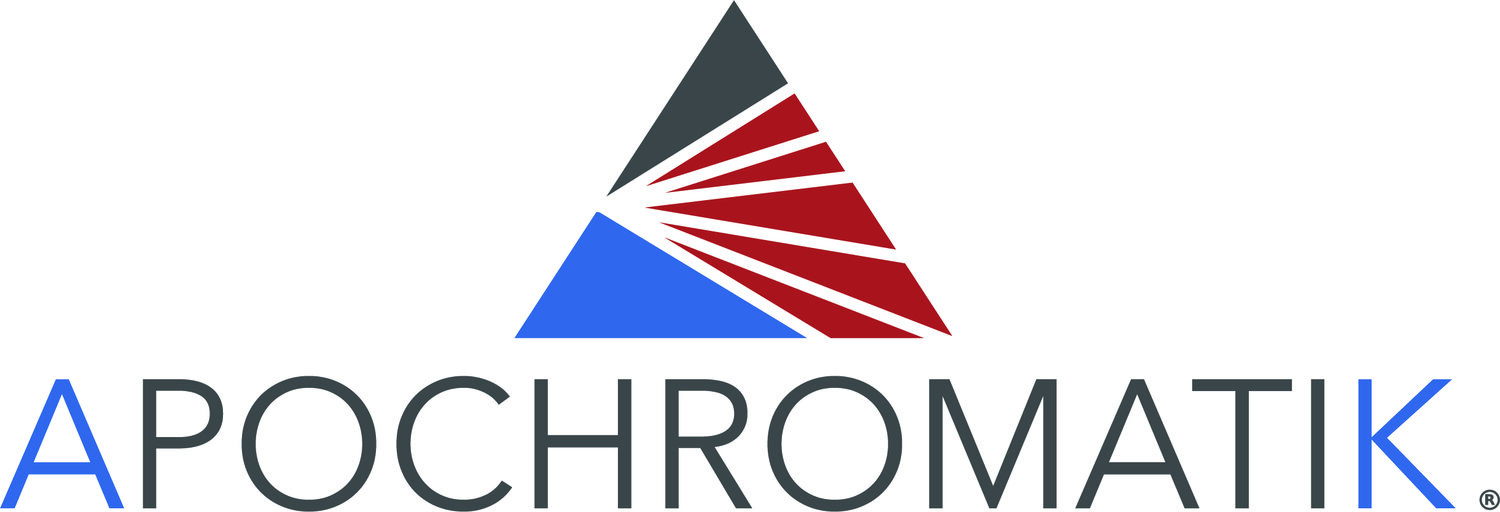The blog for all things Apochromatik.
Farther, Faster…
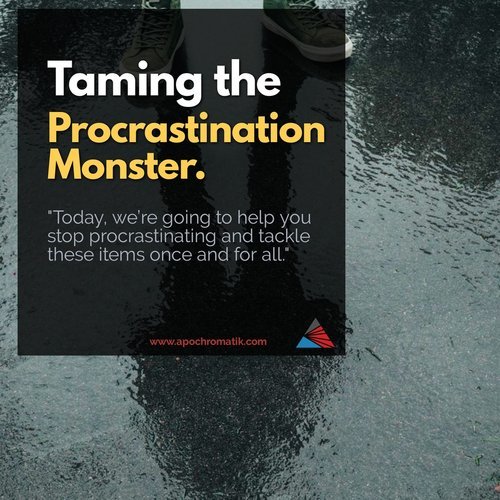
Taming the Procrastination Monster
As a kid, did you ever hear a creaking floorboard in the night, and become convinced that there was a fully grown boogieman waiting to pounce out of your closet?
Procrastinated tasks can become the adult equivalent of monsters in the closet. You don’t want to admit it, but you see the signs every time you look at your to do list, whether it’s in an app, a spreadsheet, a paper planner, or on a post-it. Maybe it’s scheduling your annual physical, sending a thank you email, texting your niece, or finding a contractor to finally fix the bathtub. Or maybe it’s writing an article for a professional publication, filing an amended tax return, getting your job application materials together, reviewing resumes for a position you’re supposed to be filling, or finally cleaning up your office.

Apochromatik's Mentoring Month Roundup
January was National Mentoring Month. Mentoring can be one of the most beneficial tools in your career toolbox, but it can be intimidating to figure out how to get someone to mentor you, and it can be easy to give up if you sense a prospective mentor or mentee isn’t excited about working with you. We addressed aspects of mentoring in depth on the blog during January in the Apochromatik Guide to Mentoring, and provided the Apochromatik Mentor Finder: The Five Step Method to Find Your Mentor, a free tool you can download to start working on finding your mentors.
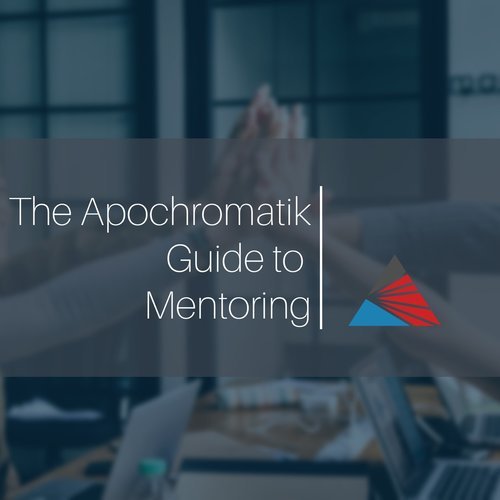
The Apochromatik Guide to Mentoring: Part V – The Three Types of Mentors Every Professional Needs to Succeed
During National Mentoring Month, we’ve talked about mentor and mentee expectations, and differences between sponsors, mentors, coaches, and friends. We also addressed how to know whether you’re ready to be a mentor. Today, we’re tackling the three types of mentors that every professional needs to succeed. If as you read this, you realize you’re missing one or more of these three essential mentor types, know that you’re not alone, and download the free Apochromatik Mentor Finder tool by joining the Apochromatik email list.
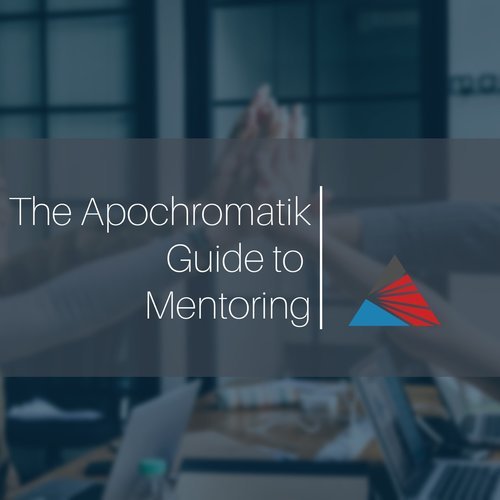
The Apochromatik Guide to Mentoring: Part IV – How do You Know Whether You’re Ready to be a Mentor?
January is National Mentoring Month, so we’ve been focusing on mentoring here on the Apochromatik blog.
We’ve addressed differences between sponsors, mentors, coaches, and friends , mentor and mentee expectations, and the one thing you must do to make the most of a formal mentoring program. Tomorrow we will cover the three types of mentors that every professional needs to succeed. If as you read this, you realize you’re missing one or more of these three essential mentor types, know that you’re not alone, and download the free Apochromatik Mentor Finder tool by joining the Apochromatik email list to get a jumpstart.
But today we are addressing a question we’ve been asked many times: How do you know whether you’re ready to be a mentor?
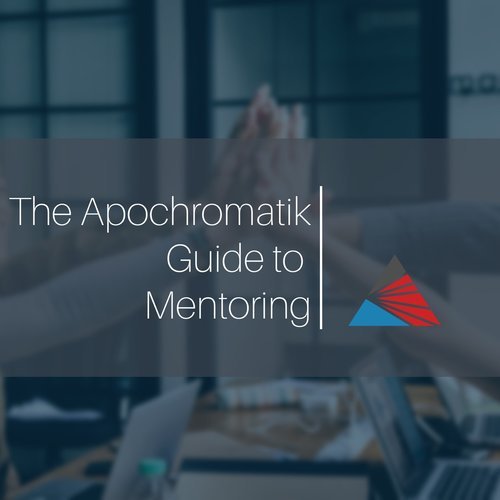
The Apochromatik Guide to Mentoring: Part III – The One Thing You Must Do to Make the Most of a Formal Mentoring Program
Not everyone is involved in formal mentoring programs, but we’ve had several requests to address how to make them more worthwhile.
Before we jump into that topic, though, January is National Mentoring Month, so we’ve talked about mentor and mentee expectations, and about differences between sponsors, mentors, coaches, and friends. Later this week we will tackle the three types of mentors that every professional needs to succeed, but if you can’t wait to get started strengthening your own mentor relationships, download the Apochromatik Mentor Finder tool by joining the Apochromatik email list.
Back to how to make the most of a formal mentoring program.
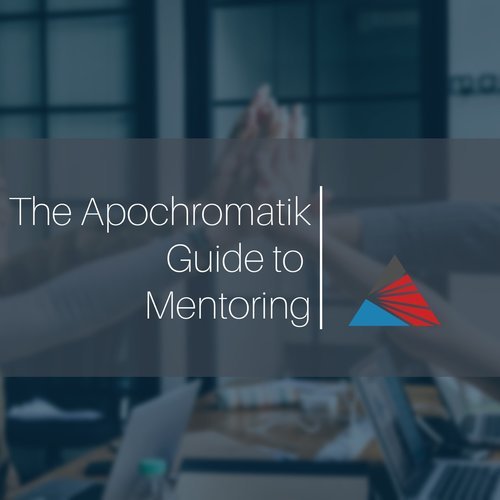
The Apochromatik Guide to Mentoring: Part II – 8 Things Mentees and Mentors Want
Last week we addressed the differences between mentoring, sponsorships, coaching, and friendships, and delved deeper into mentoring. This week, we’ll focus on what mentors and mentees want from each other. When mentors and mentees have differing expectations, problems can crop up in the relationship or, even worse, cause it to fall apart completely. By understanding what your counterpart wants, your relationship can be positive and productive for both of you.
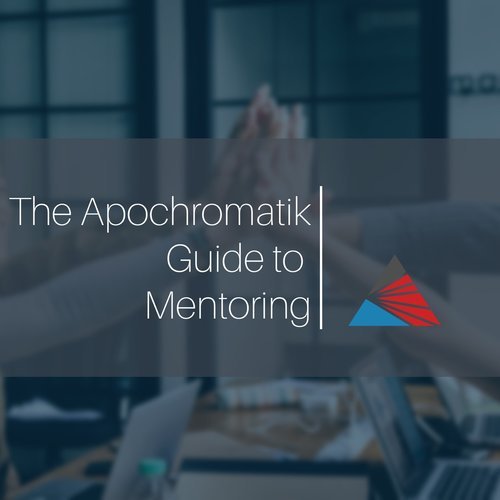
The Apochromatik Guide to Mentoring: Part I – Distinguishing between Mentors, Sponsors, Friends, and Coaches
Mentoring is often touted as a solution to problems in the workplace, from retention and promotion of women and people of color to increasing camaraderie and overall job satisfaction. While mentoring is not a panacea, it is a tool that can, through thoughtfully designed programs and invested participants, move the needle on all of those. But, while Apochromatik’s services include working with employers to design mentoring programs and ensure they’re effective, not everyone has quite figured out that they need us. (Side note: if your employer’s mentoring program needs our advice, or if you’re involved in a non-profit with a mentoring program that could benefit from a quick training for mentors and mentees, let us know.)
As we launch this series on mentoring, this week we’ll address the difference between mentors, sponsors, friends, and coaches. In future posts we’ll address tips to be a good mentor, tips to be a good mentee, the three types of mentors you need in your career, and more – all to help you find and foster the kind of mentoring relationships that can help you succeed.

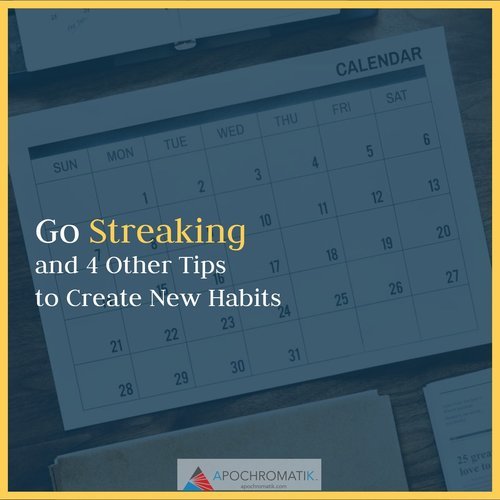
Go Streaking and 4 Other Tips to Create New Habits
“I’m too old to create new habits,” the client told me.
“What do you mean?” I asked, assuming I was misunderstanding. Nope, I was not:
“I’m too far along in my career and too set in my ways at this age to learn a new habit,” he clarified.
“Aren’t you 30?” I asked.
“No,” he said – “I’m 31.”
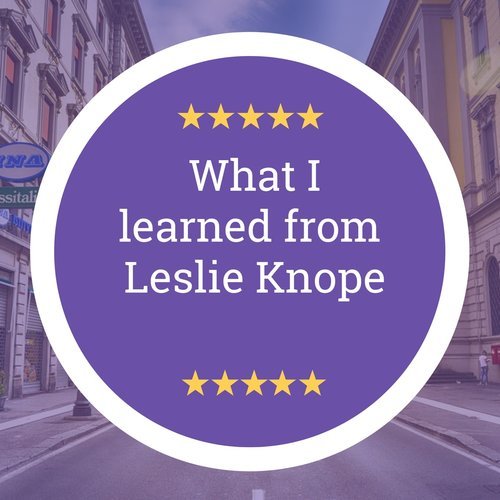
How Listening to Leslie Knope Changed My Life
“As you navigate through the rest of your life, be open to collaboration. Other people and other people’s ideas are often better than your own. Find a group of people who challenge and inspire you, spend a lot of time with them, and it will change your life.”
- Amy Poehler
Three years ago, I didn’t know what a mastermind was. Today, I know that my accomplishments over the last two years are attributable in many ways to the focus, accountability, and development that a mastermind provided. In short, Amy Poehler (or, as I prefer to think of her, Leslie Knope) is right. Let me back up.

Make 2019 Different (and by Different I mean Great)
Everything old is new again. What popular 1930’s trend is back in vogue today?
I’ll give you a hint. Historically successful leaders like Franklin D. Roosevelt, Walt Disney, and Thomas Edison (all old, white guy business leaders) and even author and creative J.R.R. Tolkien, were famous for participating. The result of their participation was exponential growth in their businesses and pursuits and the “diversity” of thought they obtained from participation helped them accomplish far more than they ever could have alone.
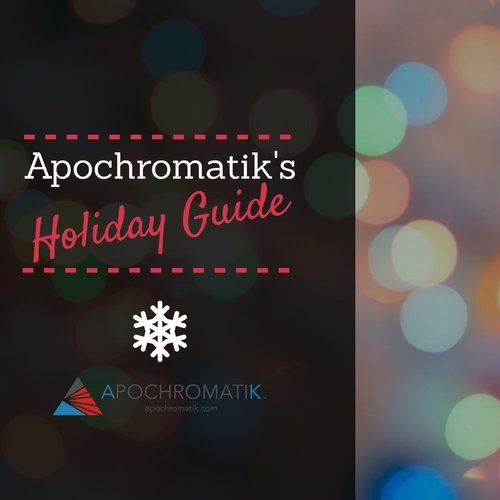
Apochromatik's Holiday Guide: Make this your best holiday season yet
The holidays are upon us! With the combination of work parties, family activities, and an expanded to do list, it can be easy to consider December another challenge to get through. Instead, we’ve rounded up some of our resources on the holidays, both articles that have quoted us as experts, and our own blog posts that can help you end December with deepened work relationships, having advanced your career, and with time and energy left for your most important relationships. So make yourself some cocoa and take a few minutes to learn how to make December a season to cherish rather than endure.

Eight Ways to Irritate Email Recipients
Studies show that the average professional spends one-third of their work day on work email. That means that email can have a big impact on your career. Read on for eight common—and easily correctable—mistakes you may be making with your emails.
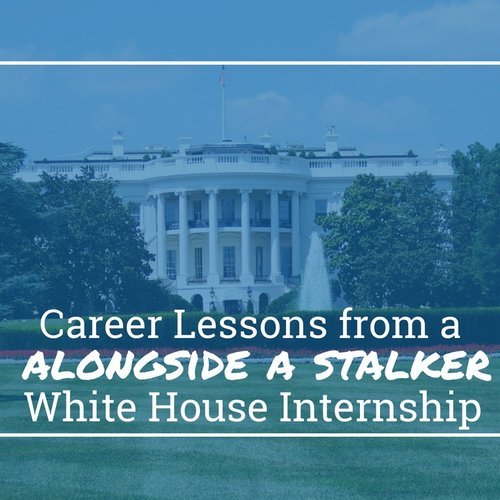
Career Lessons from a White House Internship: Alongside a Stalker
When someone sees my resume, the item I’m most likely to be asked about is my internship in the West Wing of the White House. That is usually followed up by asking whether I know there’s a character named Amy Gardner on the “West Wing” TV show. (Yes, I do, and I have a great – mostly true – story about how she really could be named after me. And if you know any different, don’t tell me. I like my version better.) Until now, though, I haven’t publicly shared how I got that West Wing internship. It wasn’t due to connections or networking and certainly not any special expertise. Instead, I got my internship in the White House press office largely because of the lessons I learned from a stalker.
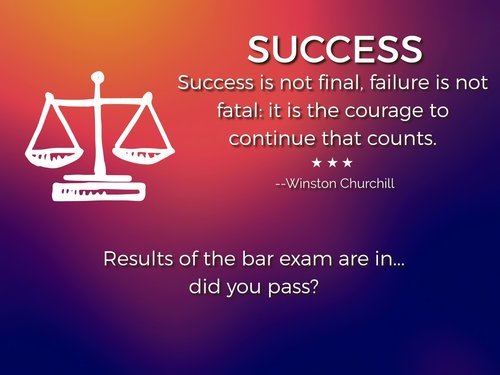
Bar Exam Results are in...Now What?
If you are awaiting bar results and imagining what to do if you didn’t pass, or if you know you didn’t pass, have a seat, and humor a former law school dean of students. I saw many students who did not pass the first time, and I hope that a little advice might help you get through what is undoubtedly a difficult experience.
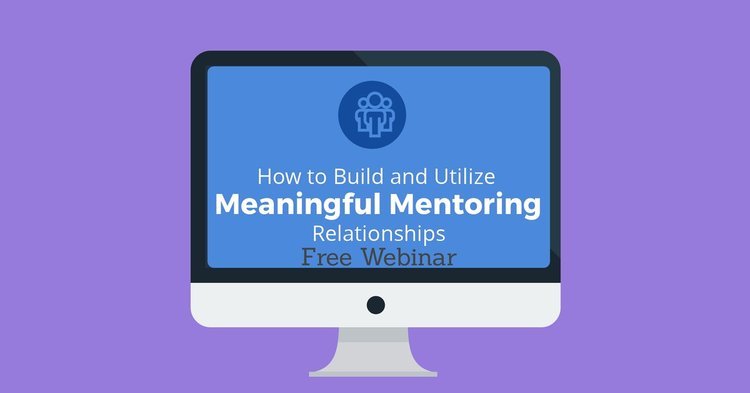
You’ve heard that you need mentors, but what does that even mean in real life?
Next Thursday, September 20, join Apochromatik’s Amy M. Gardner for a free webinar on How to Build and Utilize Meaningful Mentoring Relationships.
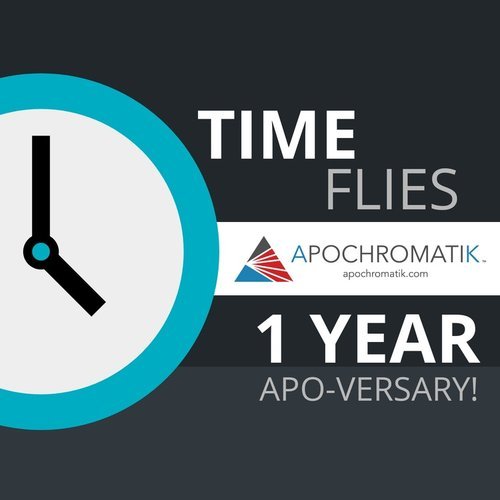
1 Year Ago Today...
A year ago we first shared our Apochromatik website and launched our Apochromatik Facebook page.
Since then, we’ve built our business to the point where we both now work with our coaching and consulting clients full-time.
